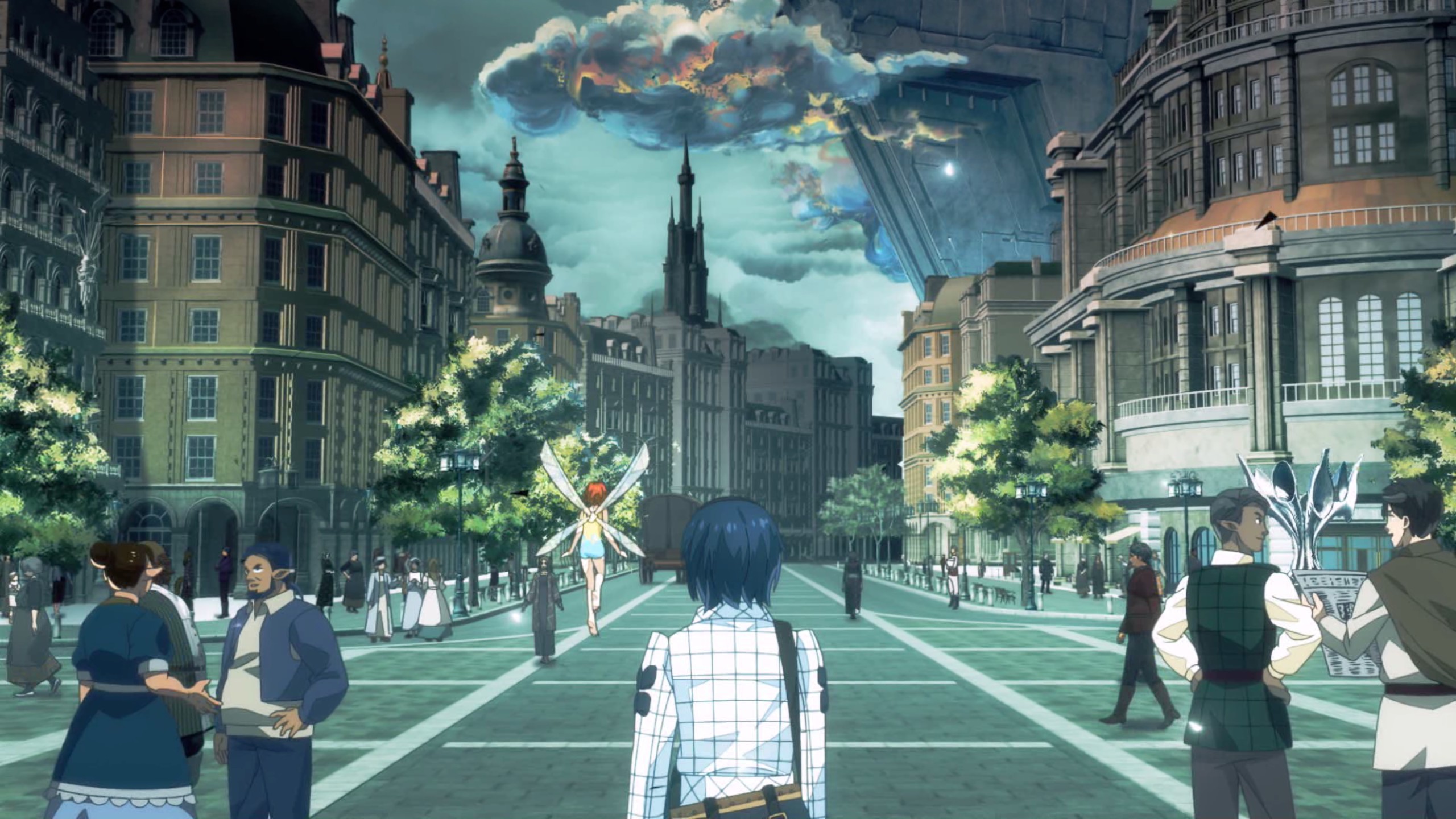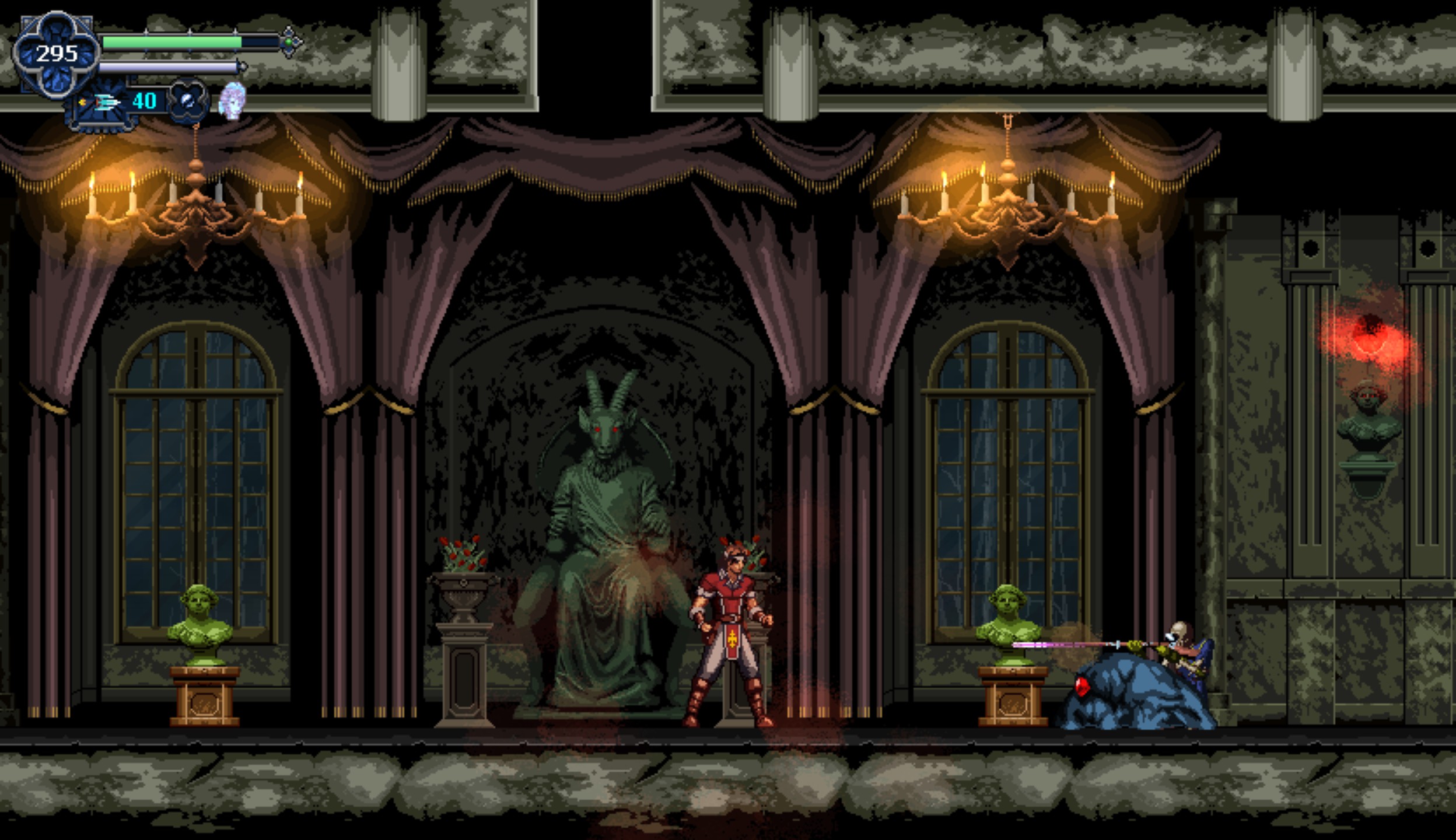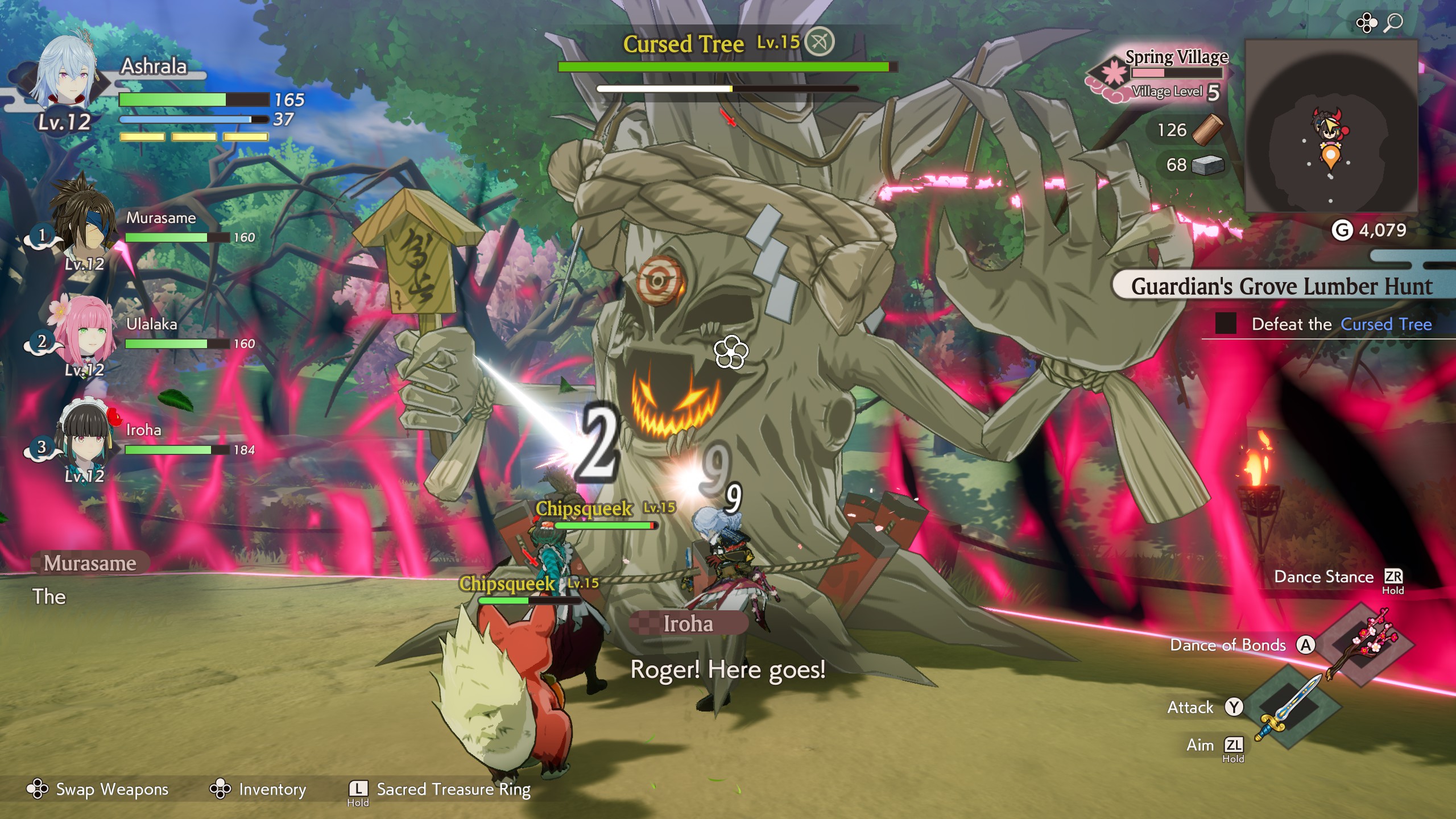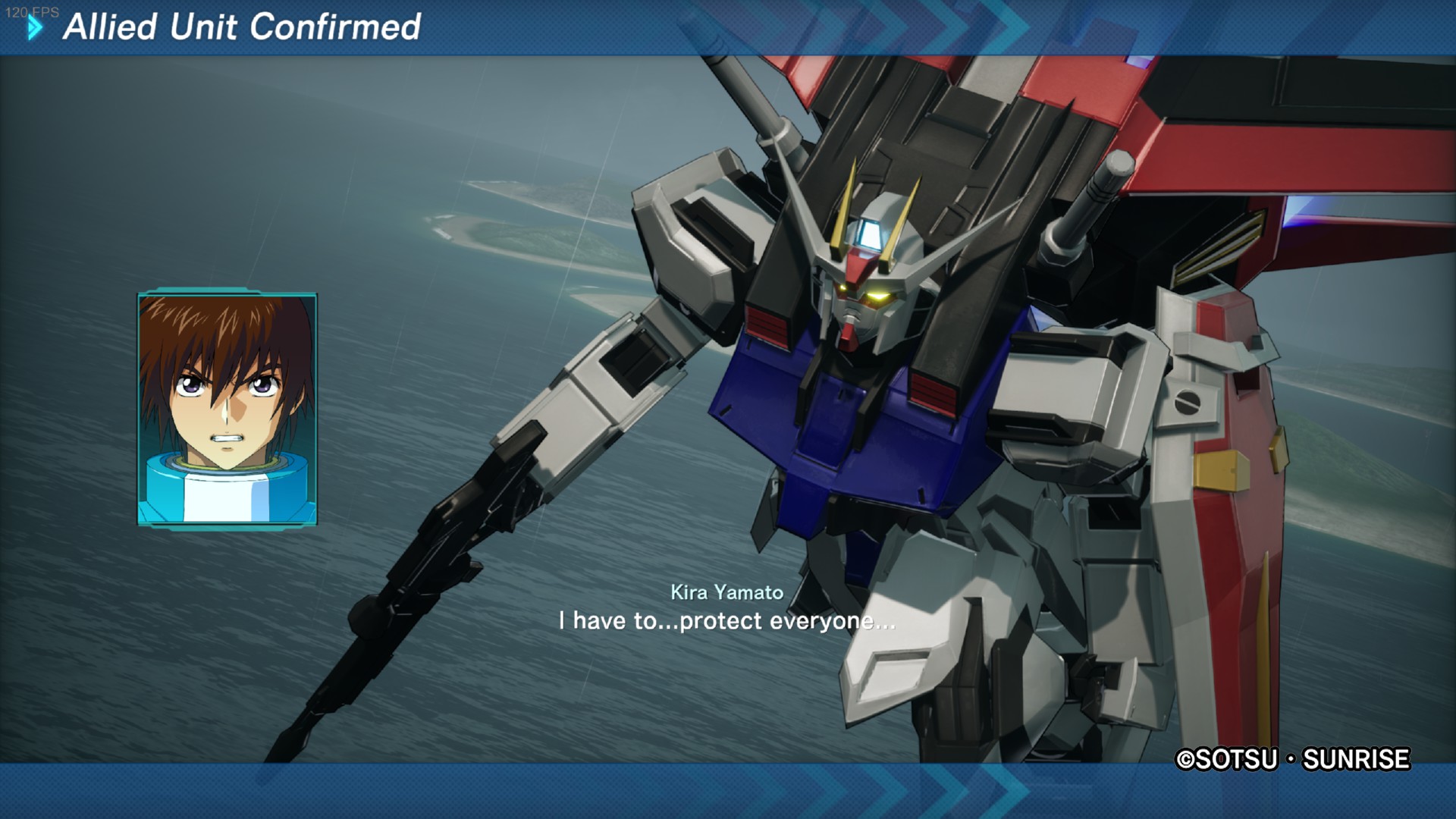“So it’s just fantasy Persona?” is a standard response to the existence of Metaphor ReFantazio. You divide your time between fighting enemies in dungeons, forgings bonds, and improving social stats, so it’s very easy to see that the game is set in the mould of the aforementioned, deeply loved JRPG series. During the first dungeon up until changing regions, I was kind of iffy on the game, as it did seem to be little more than a fantasy-themed take on the Persona games. But after sticking with it, it becomes clear that the game is much more than that, offering a notably different experience that forces players to make use of markedly different tactics all around.
For the most part, you’re still on time limits where you have to clear big dungeons . You’ll be hitting enemy weaknesses and swapping out skill sets to make use of said weaknesses while having extra resistances of your own. But the specifics are extremely different. For one, instead of Personas, you have to make use of things called Archetypes. You don’t get these from fighting, nor do you negotiate with enemies. Instead, they’re unlocked by forging bonds with other characters by spending time with them, or by simply meeting certain characters. Also, the protagonist isn’t the only one who can swap between them, your whole party does.
This makes Metaphor ReFantazio‘s characters less unique in combat, but massively changes up your tactical options. Archetypes can all be ranked up to level 20, which will often unlock another Archetype on your tree. A special currency called Mag is obtained throughout the game and used to grant characters these archetypes, which you can equip from the menu. Unlike in Persona, you can’t swap between these mid-battle, but you can swap in different party members to basically accomplish the same goal. There are far fewer Archetypes than Personas and you can’t fuse them at all. It feels very different.
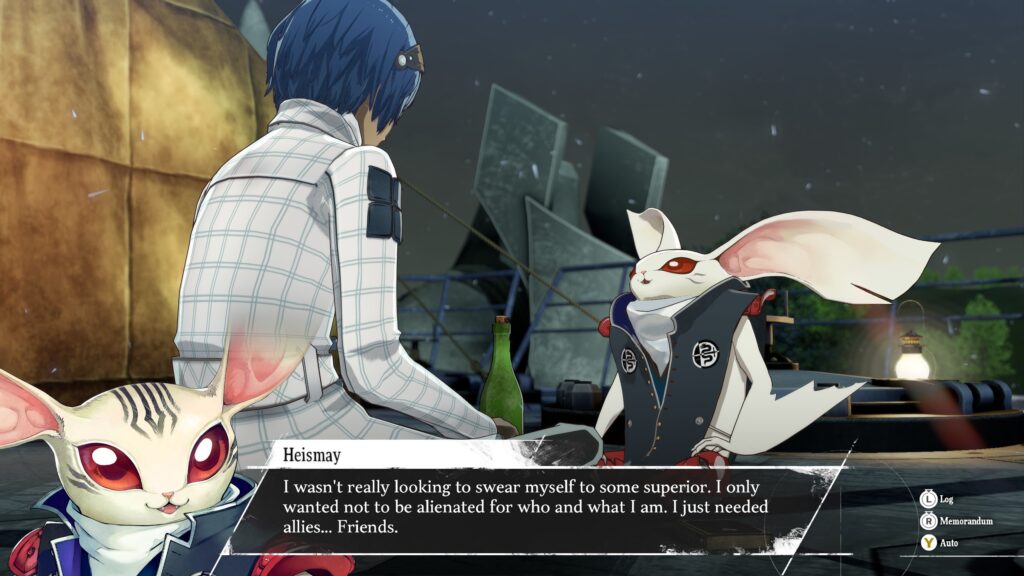
Even though there’s no fusion, skills belonging to any Archetype a character has unlocked can be set in slots of another one. All of this makes for some very cerebral combat. The differences don’t stop there, however. When you hit enemy weaknesses, foes don’t get knocked down. Instead you’ll just have an additional turn added to your team, which is essentially Shin Megami Tensei‘s Press Turn system. Enemies that hit your party’s weaknesses will also get another turn, while missing or having attacks blocked will remove two turns. It’s as great a system as ever, although I was surprised to see it here.
Dungeons are much like the ones in Persona 5. They’re set and you’ll explore, picking up treasure along the way. But another massive difference is that, while in a dungeon, you have a combo (that changes with your equipped weapon) that you use to attack foes. Enemies weaker than you will die in a hit or two and give you paltry rewards, meaning that Metaphor ReFantazio is, at times, a hack-and-slash. Enemies give off a flash before attacking, giving you time to dodge out of the way. Those on your level and above have a stun gauge that, once worn down, allows you to ambush them in battle.
Once you do so, you get a pre-emptive strike that damages all enemies. Similarly, if you get hit by a foe that’s as strong as you or better, they get to strike first, but this just means they get to attack first and don’t have any ambush strikes. It’s well worth mentioning that, due to how much of this works, Metaphor ReFantazio is a more challenging game than Persona 5 Royal was. Especially early on when you only have a few party members and not many Archetypes to go around. It doesn’t help that your early party members’ default Archetypes are all based around physical skills, which will put you in a spot of bother if you don’t think to equip Mage and Healer Archetypes to deal with all the enemies resistant to physical.
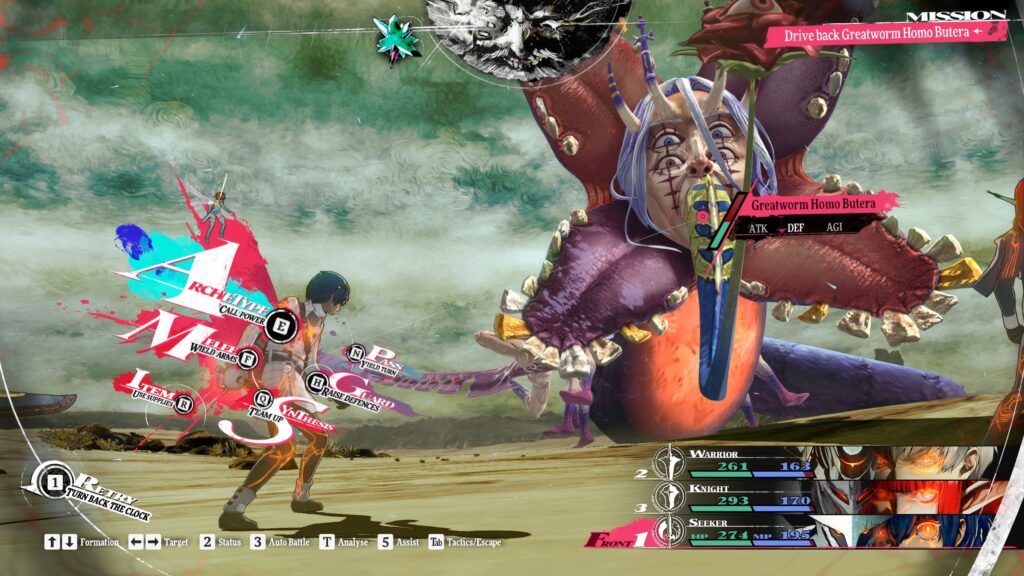
As such, the game has a bit more of a curve than you might think. But this is also made unique by the prevalence of side quests. There are bounties and side objectives to tackle that have you go to smaller dungeons or more open areas, which makes Metaphor ReFantazio feel even more like a more standard RPG than any of the Persona games do. With that said, I’m sure you recall that the game is still often on a time limit. Your party gets a vehicle early on that lets you travel to new areas and, naturally, doing so takes in-game time. This adds yet another wrinkle that requires you to plan more carefully.
However, travelling doesn’t just eat up your time. You’ll still have afternoons and nights to interact with party members, improve your HP and MP stats, or polish your social stats, all while travelling. Everything is so incredibly well thought out that I can’t help but appreciate it all. The game’s plot is similarly impressive, with a story focusing on the main character increasing their renown in a competition to see who becomes the new king. For the first time in recent memory I found myself switching to the English dub of a Japanese game and I really do feel that the dub is better overall.
This is because a variety of British actors have been cast, which gives the game so much more flavour than hearing typical tropey anime actors (not that the Japanese cast isn’t also great, mind you.) The localisation itself is also packed with British flavour. Early on you travel to a town where most characters have Scottish accents, complete with them saying “dinnae” and “cannae.” It’s all pretty marvellous and I don’t see myself switching to Japanese. That being said, not all of Metaphor ReFantazio‘s dub actors are of the same quality level. The main character’s (who says the lines you choose now) English voice actor sounds kind of wooden and bland and the voice of his fairy friend Gallica sounds a little too normal to be a fairy. Since everyone else is so great, it’s hard to harp too hard on this.
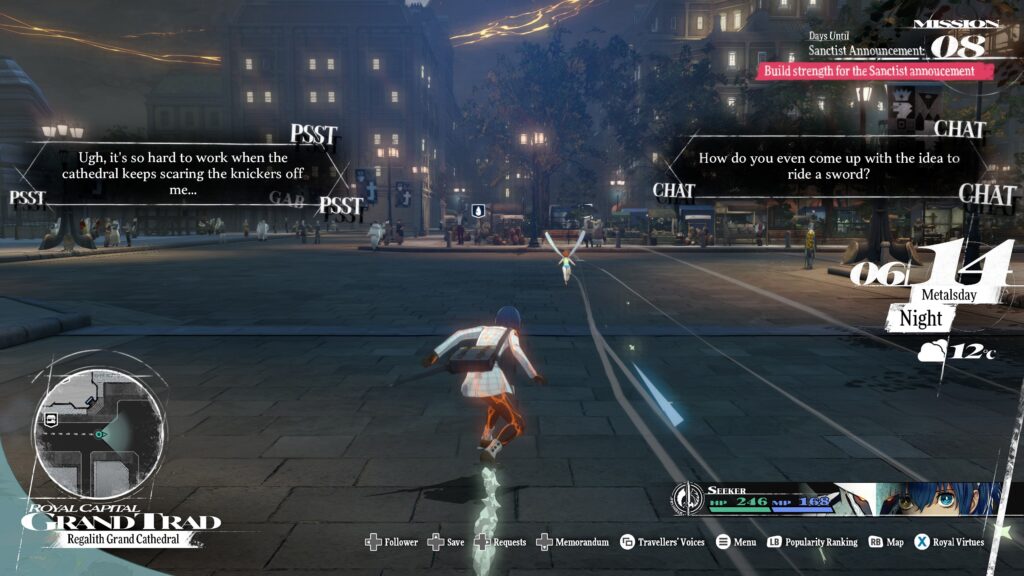
On the other hand, the PC port is less than great in a lot of ways. The most jarring aspect of this is that there’s absolutely no anti-aliasing. By default the game is extremely shimmery and jaggy, which is an absolute shame. Thankfully it took modders just a day or two to implement TAA and FXAA via mods.
The game was missing other important options, such as shadow quality and draw distance. I also really dislike the blur and speed lines applied whenever you dash. Of course, another mod went ahead and fixed all this. It’s not a big deal since these mods are so easily installed, but AAA games on PC in 2024 shouldn’t need fans to mod in basic features.
Metaphor ReFantazio is a huge, challenging game with a great story that’s both strongly reminiscent of Persona while also very much doing its own thing. It’s probably the best JRPG of the year, which is saying something since it’s Atlus’ third game in the last 12 months. If you’re specifically expecting the game to be Persona 6, it really isn’t, but it’s just as much worth playing all the same.
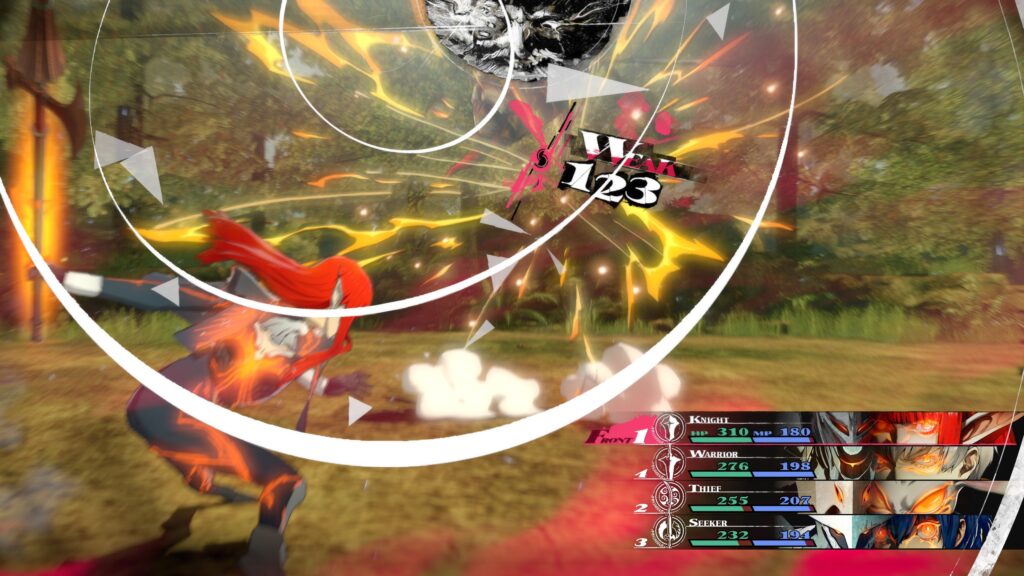
Metaphor ReFantazio: Metaphor ReFantazio offers a huge slab of meaty JRPG action, a great cast of characters, and a ton of creativity to make for one of the best of its ilk. – Andrew Farrell
Check out our previous review:
Killing Time: Resurrected PC review — And in my last hour, a slave to the power of death |

